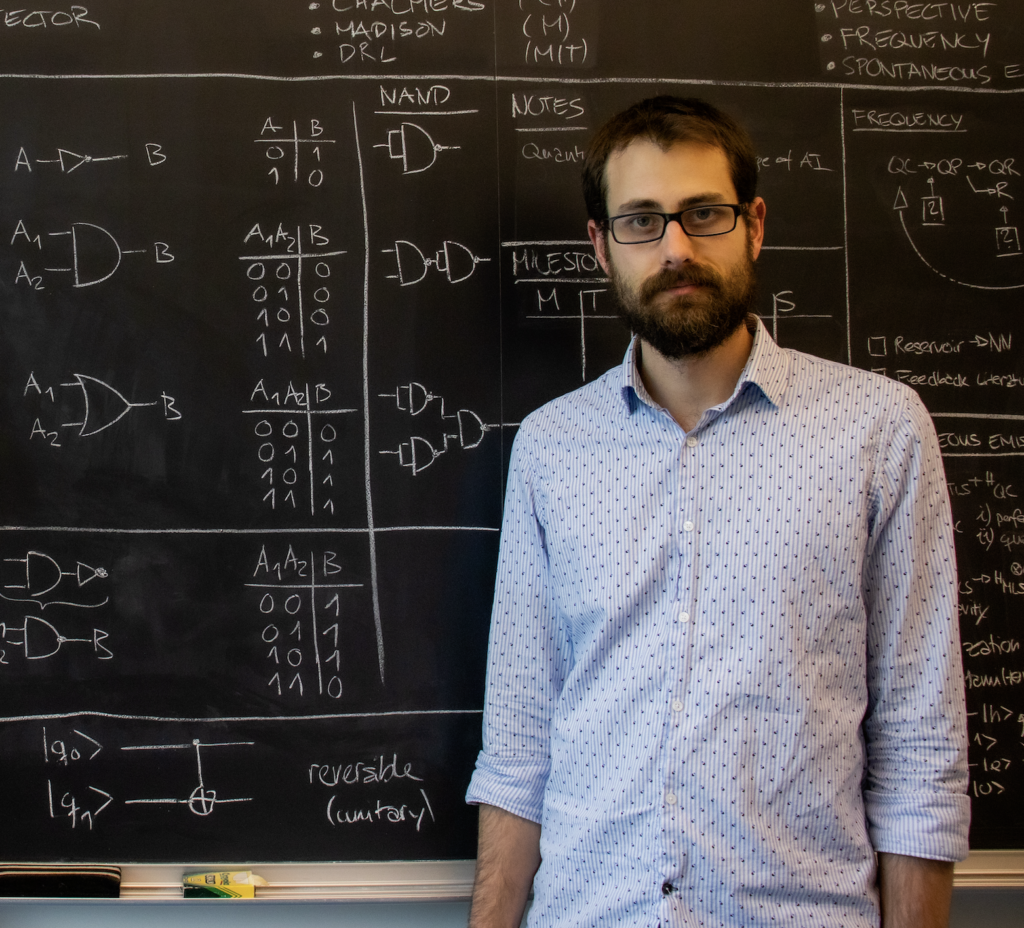Rabitz Group’s Lienhard Headed for Lindau Nobel Meeting
Benjamin Lienhard, a postdoctoral fellow with the Rabitz Group, was selected to attend the 73rd Lindau Nobel Laureate Meeting at Lake Constance, Germany this summer, a prestigious international forum that brings Nobel laureates together with the brightest young academics working today.
The focus of this year’s gathering is physics, which will play out across the informal discussions and small group panels that are Lindau’s hallmarks.
The annual gathering has been offered since 1951 to provide an opportunity for generations of scientists to co-mingle, from Nobel laureates and others at the top of their field to those still pursuing degrees. Some 650 students from 93 nations and more than 30 Nobel laureates will attend the week-long meeting from June 30 to July 5.

Postdoc and quantum physicist Benjamin Lienhard, Lake Constance-bound for the 73rd Lindau Nobel Laureate Meeting.
Lienhard is a quantum physicist whose work addresses the inherent challenges of complete quantum processor characterization and calibration. He was recruited for Lindau from a pool of global candidates during a multi-stage evaluation process.
“I was thrilled and deeply honored when I received the news of my invitation to the Nobel Lindau meetings,” said Lienhard, who has been with the Rabitz Group for nearly three years. “Being recognized and invited to such a prestigious gathering of esteemed scientists, researchers, and Nobel laureates is an incredible privilege.
“The Nobel Laureate community represents some of the most accomplished and influential researchers in the world. Gaining insights into how they navigate challenges, overcome obstacles, and communicate their results can be immensely valuable to young researchers. Moreover, meeting them in person and hearing about their struggles will humanize their experiences and inspire confidence in aspiring researchers like me. I am grateful for this opportunity and hope to learn from the brightest minds in physics.”
Applicants to the meeting must have a ranking in the top 5% of their class, demonstrated excellence in their field of study, and experience presenting their work at a prior international meeting. They undergo an in-depth review process with special attention to academic achievement.

More than 30 Nobel Laureates and young scientists from more than 90 nations will exchange ideas on the foundations and future of physics in late June.
F. Duncan M. Haldane, the Eugene Higgins Professor of Physics and recipient of the 2016 Nobel Prize in Physics, is scheduled to attend this year’s Lindau meeting. He has attended three meetings. David MacMillan, the James S. McDonnell Distinguished University Professor of Chemistry and recipient of the 2021 Nobel Prize in Chemistry, attended the meeting in 2022.
Lindau alternates between themes of physiology and medicine, physics, and chemistry, the three natural sciences in which Nobel Prizes are awarded each October. The topics of discussion this year were chosen for their relevance to societal needs: solutions for the future of energy supply; the potential and impact of artificial intelligence; and basic and applied research on quantum physics.
“The Nobel Lindau Committee clearly recognized that Ben’s wide-ranging physics accomplishments make him an in ideal participant in their meeting,” said Herschel Rabitz, the Charles Phelps Smyth ’16 *17 Professor of Chemistry and Lienhard’s adviser.
“Ben came to Princeton to primarily engage in theoretical aspects of quantum information science after completing a Ph.D. in the experimental realm of the area. He spread his wings widely at Princeton by participating in multiple domains of theoretical physics while also engaging in experimental design activities.”
Lienhard has bachelor’s and master’s degrees in electrical engineering from ETH Zurich with a focus on quantum and semi-conductor physics and optics. He earned his Ph.D. at the Massachusetts Institute of Technology in experimental quantum physics with solid-state quantum emitters and superconducting quantum systems. He joined the Rabitz Lab as a postdoc in August 2021.
